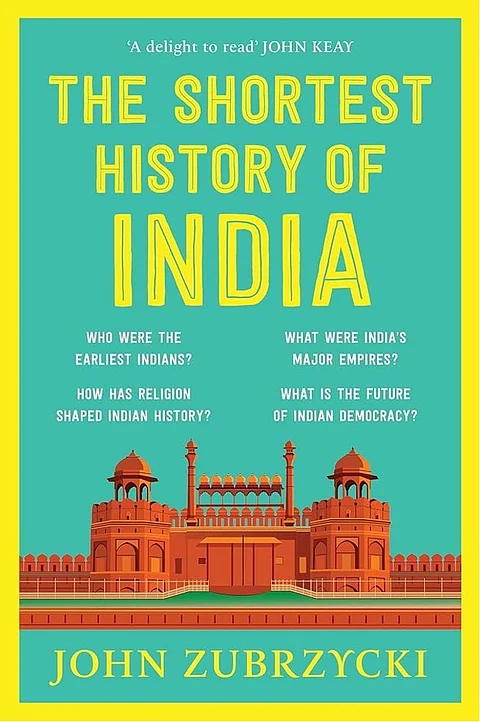

The Shortest History of India, written by Australian author John Zubrzycki, condenses 5,000 years of Indian history into less than 300 pages, covering everything from the Harappan era to the "New India" that is being created by the current political system.
The well-designed introduction on Indian history by Zubrzycki is incredibly appealing to the eye. He takes readers on an exciting journey across five millennia by skilfully bringing to life legendary dynasties and ancient civilisations. He addresses all pertinent queries: Who were the earliest Indians? How has religion shaped Indian history? What were India’s major empires? And, most importantly, what is the future of India’s democracy?
Indian nationalists, the Chola, the Maurya, the Mughals, and the British monarchs all hold Zubrzycki's narrative in high regard. The historical details and asides that are typically left out of traditional history books will be of particular interest to readers.
The history of chess' creation during the Gupta era is one of them. By the seventh century, chaturanga, a four-player military game in Sanskrit that means "four limbs," had changed into a two-player game that is similar to modern chess.
When the Kohinoor diamond was given to Queen Victoria, it was equivalent to two and a half days' worth of food for everyone on the earth. Following its closure in 1874, the East India Company reopened as a luxurious food brand in London in 2010.
After visiting the Taj Mahal in 1648, French physician Francois Bernier was convinced that it was far more worthy of being listed among the world's wonders than the Egyptian pyramids.
He writes in the book's concluding chapter, “What India has lost and what will be hardest to restore is the state’s commitment to secularism."
Zubrzycki writes: “In recent decades, notions of India as a historical entity, a people, and a civilisation have become highly politicised. Hindu nationalists refer to India as Bharat Varsha, the ancient Sanskrit name for a homeland that stretches from the ‘Indus to the Seas.’
Have you liked the news article?